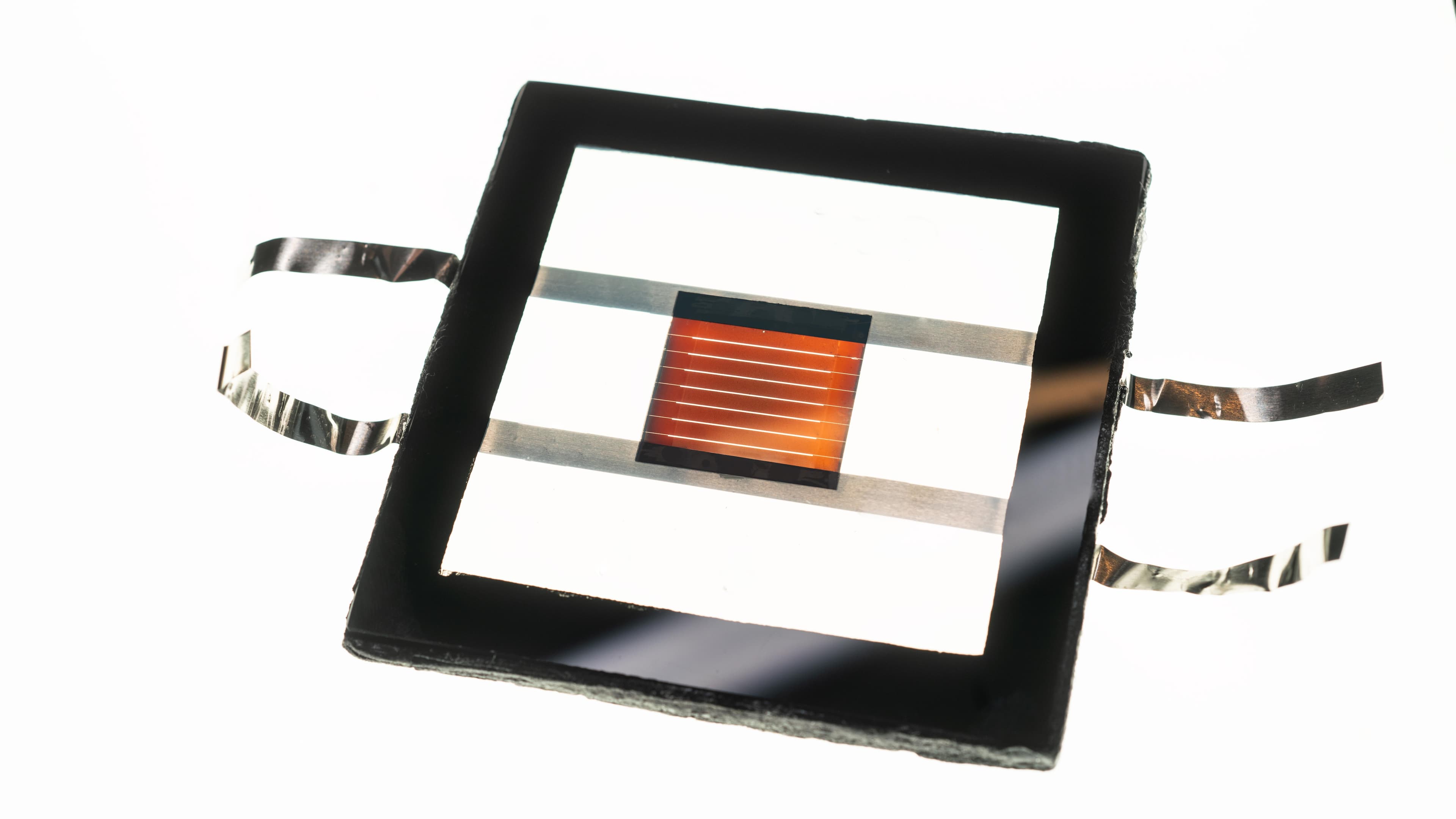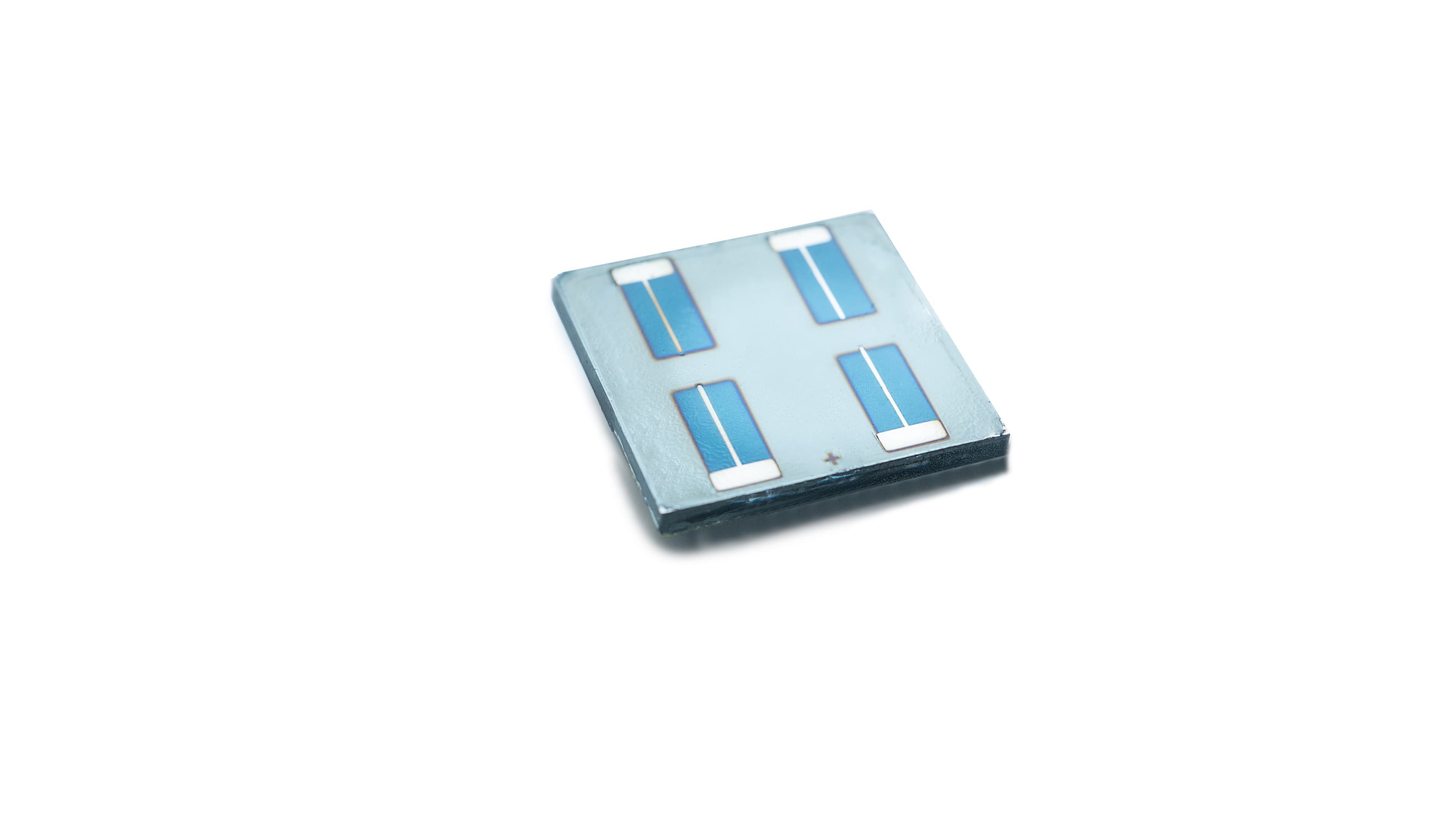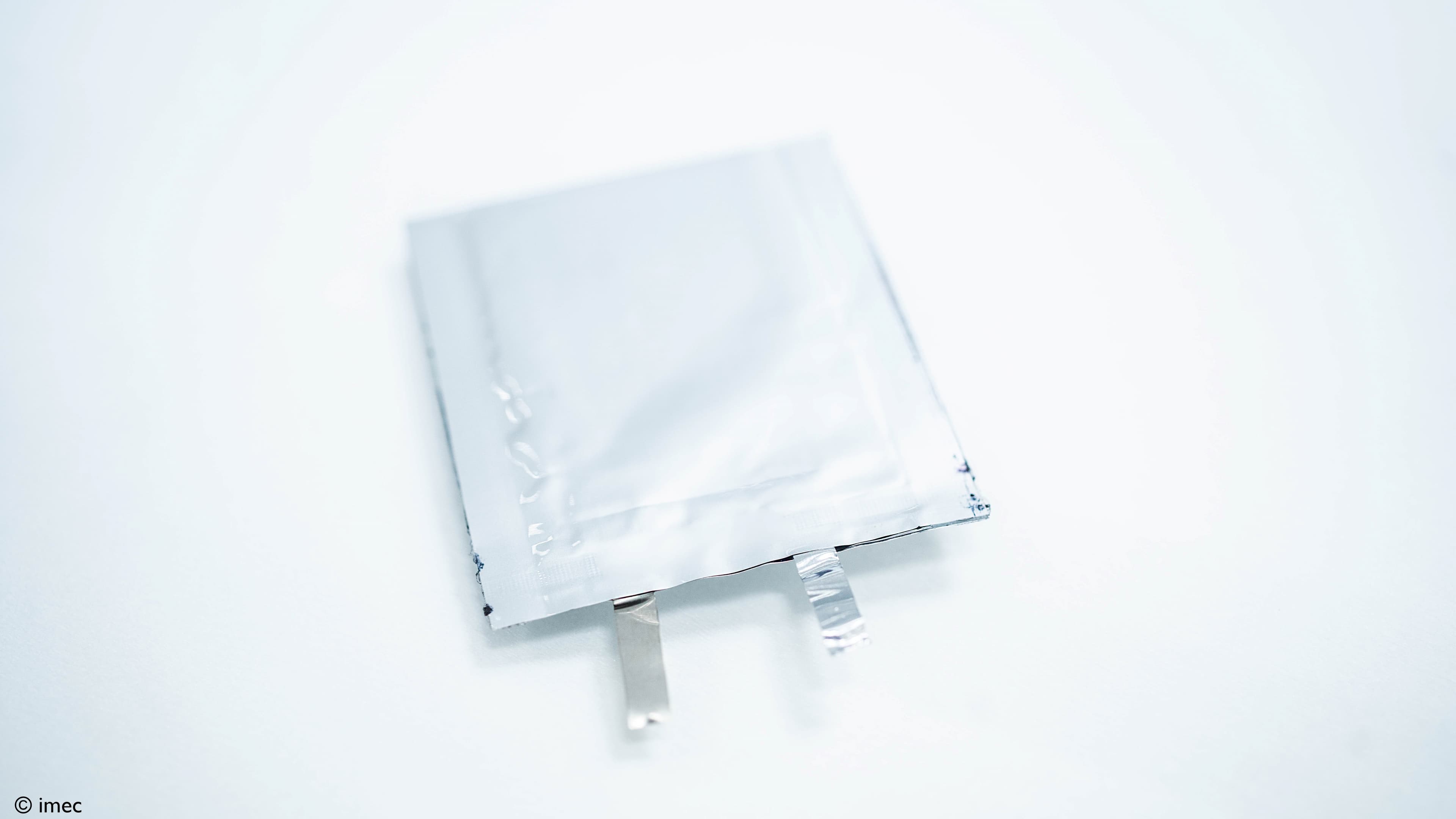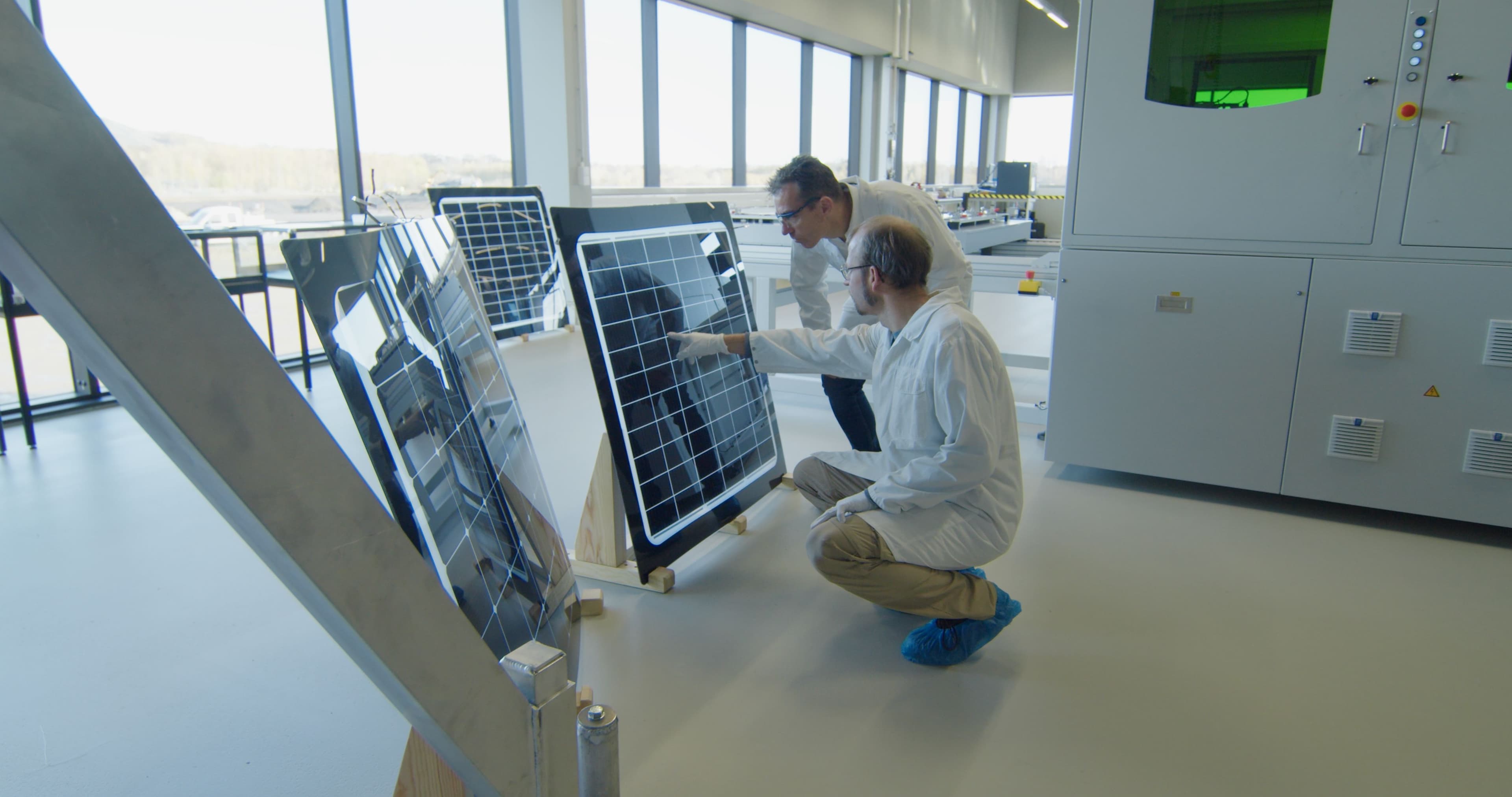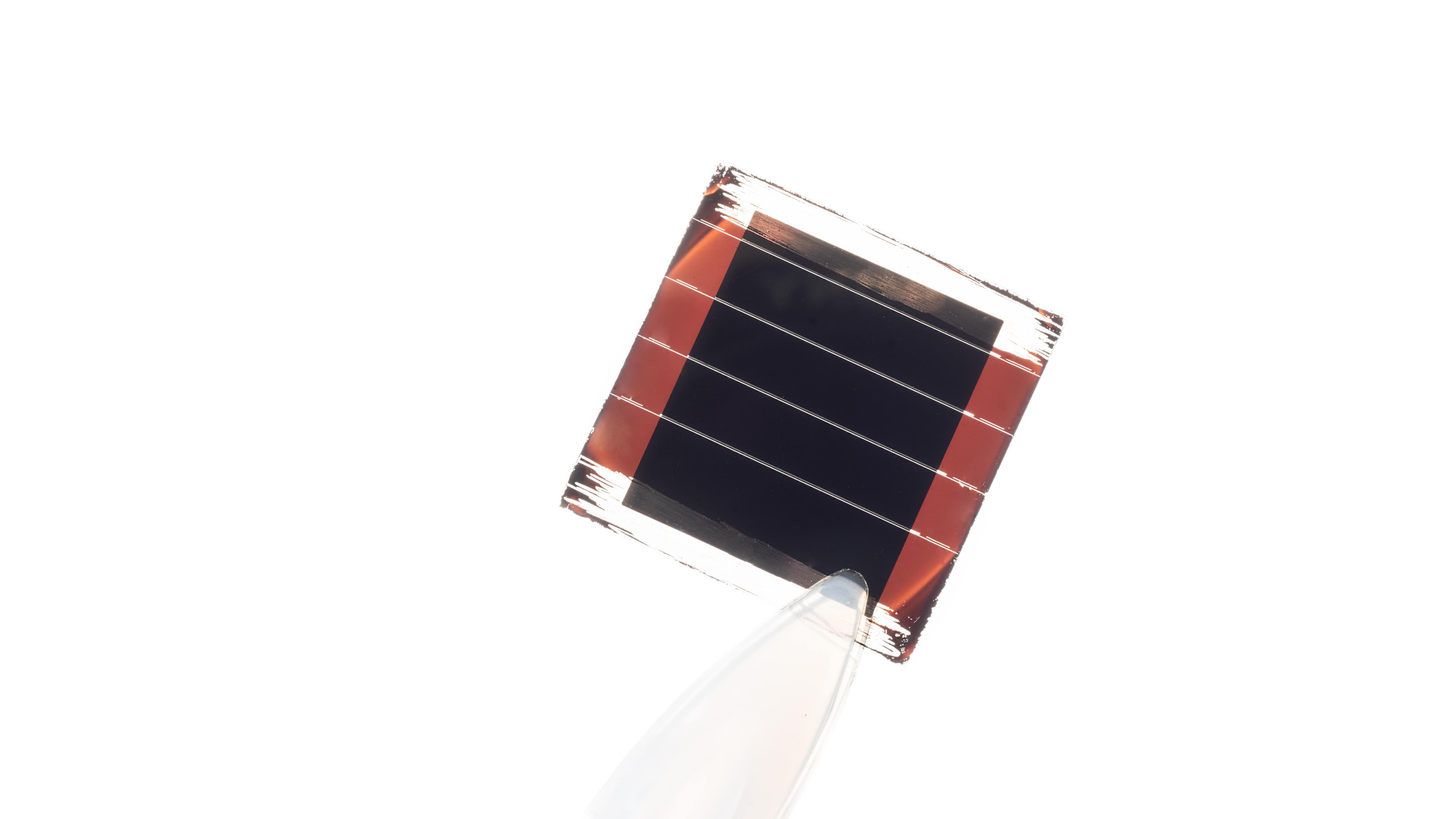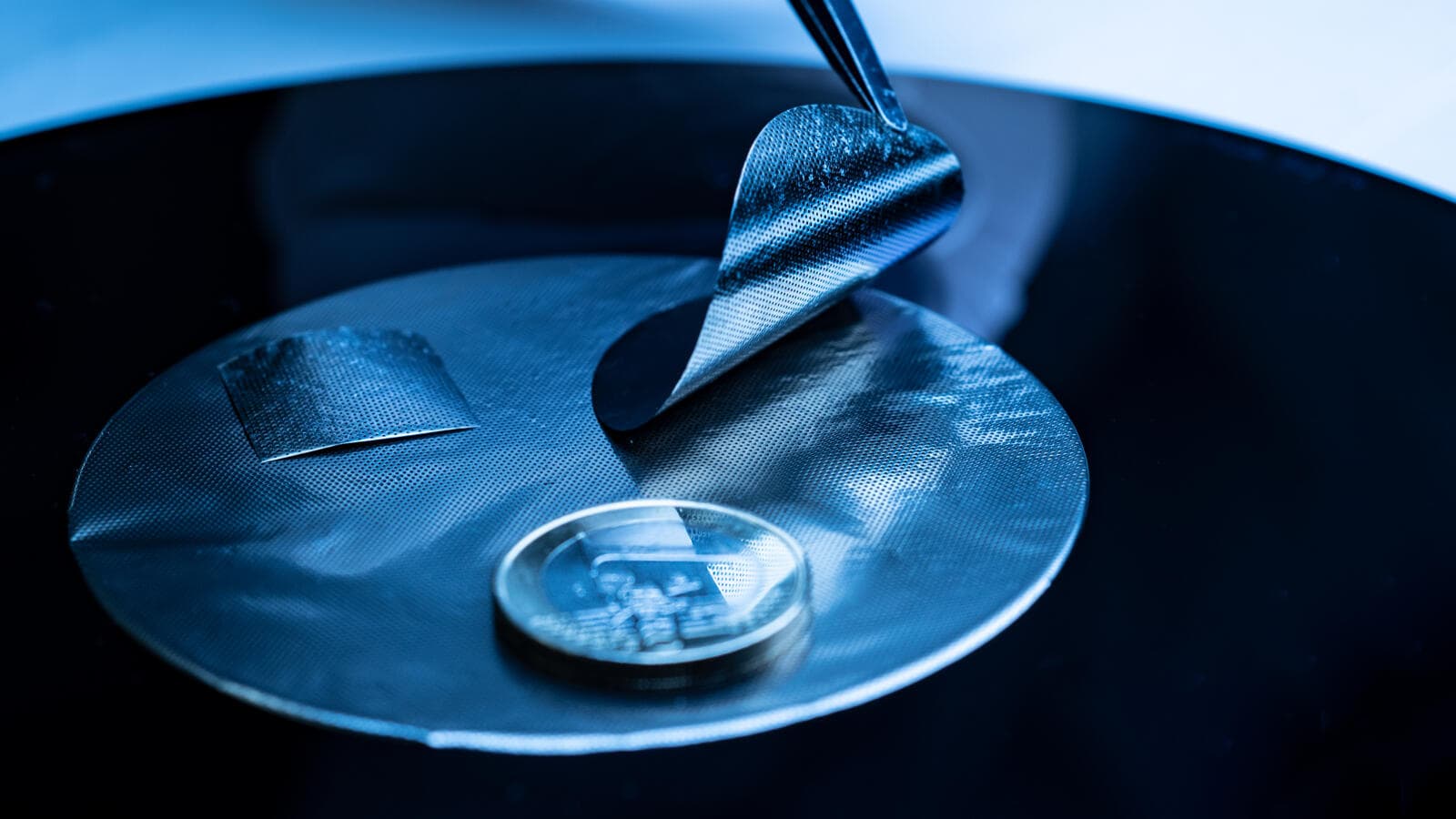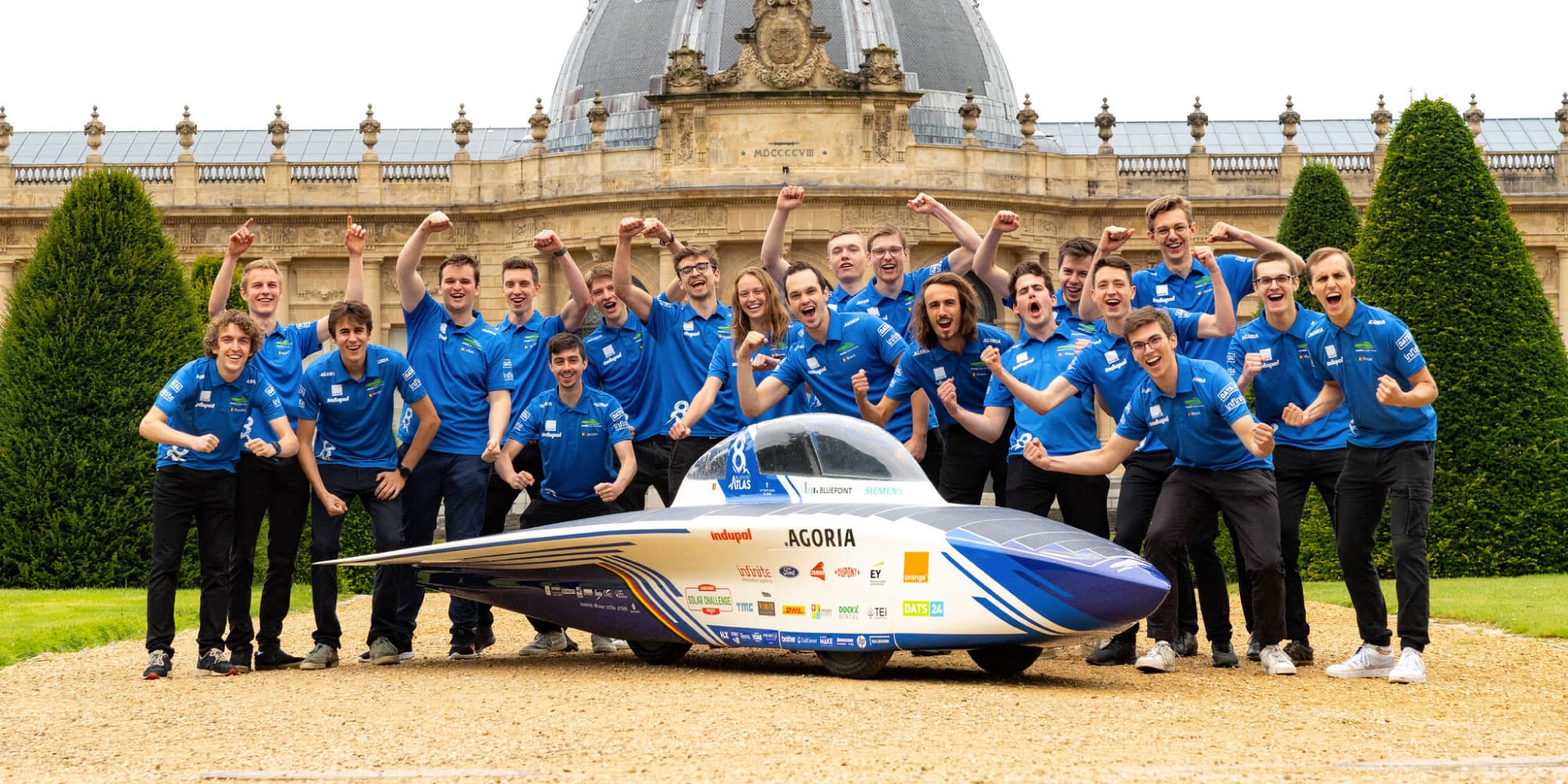
Batteries
Storage technologies like batteries are important to store electricity from intermittent renewable energy sources and to enable electric mobility. Imec develops technology for solid-state micro-batteries and formable batteries.
Imec has been researching and developing technologies for solid-state batteries for over 10 years. These are batteries that use solid electrolytes instead of the liquid or gel electrolytes found in traditional lithium-ion batteries.
Advantages are:
- improved safety
- higher energy density
- reduced degradation
- potential for faster charging
Solid-state batteries can be used in various applications, including electric vehicles, consumer electronics, medical devices, and renewable energy storage.
In 2022, imec, as a partner in the top European energy R&D innovation hub Energyville, founded the spinoff SOLiTHOR. The company focuses on the development, manufacturing and commercialization of innovative solid-state lithium battery cell technology based on the imec-patented nano-solid composite electrolyte and the nano-anode. The goal is to enable true electrification of the transport industry.

Production scheme of the nanomesh electrodes
New materials and battery cell types
Imec further investigates next-gen batteries by developing new concepts and electrolyte/electrode materials. The aim is to increase the energy and power density.
These are the topics that imec is working on:
- small-capacity formable batteries for microsystems or implants where space is dear
- large-area formable batteries or structural batteries where the batteries are laminated onto a large area and can even take up a structural role
- technologies for large-capacity fast-charging batteries, e.g. how to improve the cyclability, engineer the interfaces between the various battery materials, etc.
- thin-film sensors for batteries for process finetuning or improved battery management systems, allowing in situ and in-cell measurements
Want to get involved in our research? Click the button below to get in touch.


